7 July London bombings: Blair says terror threat 'not going away'
- Published
Tony Blair: ''As the morning went on... it became clear there were multiple casualties''
Tony Blair has issued a stark warning that the threat from Islamist terrorism has now reached "the edges of Europe".
The former prime minister, in an interview for the BBC News Channel on the 10th anniversary of the 7/7 attacks in London, said Islamist extremism had spread "right across the world".
"The threat is not going away and will intensify in time to come," he said.
The West, he said, had to show it had "the means of combating these people and combating them on the ground".
Prime Minister David Cameron, external has said the threat facing the UK is "as real as it is deadly" but the country will never be "cowed" by terrorism.
Mr Blair was in power when the UK suffered the single worst terrorist attack in its history, when 52 people were killed and hundreds injured in a series of bombings on London's Tube and bus network on 7 July 2005.
The families of those who died, as well as some of the injured, will attend a service at St Paul's Cathedral later while a minute's silence will be held during the service and on London's transport network at 11:30 BST.
Speaking to the BBC, Mr Blair rejected any suggestion that those attacks had been prompted by British interventions in Iraq or Afghanistan, which had themselves between a response to the 11 September 2001 terrorist atrocities in the US.
'On the ground'
"I think it's very important to understand that the probable leader of the 7/7 attacks was someone who was first in a training camp in the middle of 2001, before 9/11, never mind before the invasion of Afghanistan or the invasion of Iraq and the difficulty is that there will always be reason and excuses that people use for terrorism," he said.
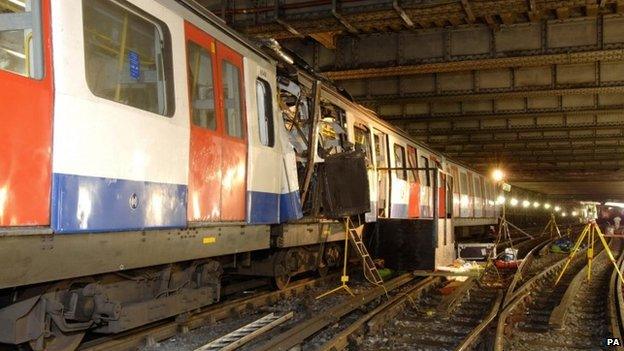
Mr Blair said those who carried out and instigated terrorist attacks were solely to blame for them
"You have countries like France today that's the subject of terrorism or Norway or Belgium or Tunisia or Kuwait or countries across Africa, none of whom had anything to do with British or American foreign policy and yet whose citizens come under this type of violent and indiscriminate killing so I think in the end, the responsibility has got to lie with the people who carry this out and those who encourage them."
Islamist terrorism had proliferated in the 10 years since 7/7, he said, and was now a global phenomenon, with terrorist training camps spreading from Iraq and Syria to Libya and North Africa.
The fight against terrorism, he insisted, was "not something we have caused but something that we are caught up in" and would have to be waged "by all means possible".
"You're not going to reduce this threat of terrorism unless you have a comprehensive strategy to deal with it which requires the battle of ideas but it also requires the force on the ground to fight them," he said.
'Without mercy'
Mr Blair warned that if the international community was not prepared to tackle extremists groups such as Islamic State head on they would continue to grow.
"When you fight these people it's going to be tough because they're prepared to kill without mercy and die without regret and that makes them an enemy that may not have the same conventional military capability but has certainly got the determination to fight."
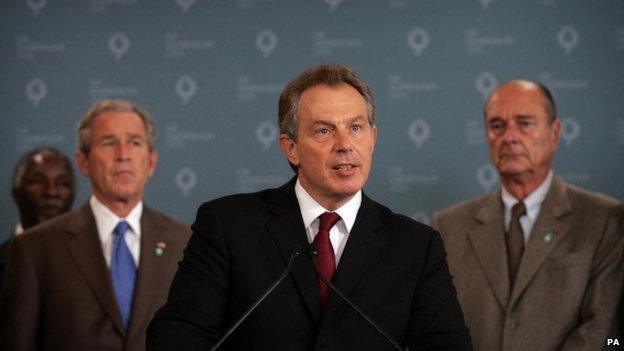
Mr Blair said Islamist terrorism had proliferated in the 10 years since the 7/7 attacks
Pressed over whether the response should involve British boots on the ground, he said: "This is maybe a discussion for another day."
Amid a growing debate in the UK as to whether air strikes against Islamic State should be extended beyond Iraq, Mr Blair - who recently stepped down as a Middle East peace envoy after eight years in the role - said militant groups were now based in a number of countries, including Syria and Libya.
He added: "I don't criticise Western leadership today but I do say this is a long hard struggle and we've got to be prepared to engage over a long period of time because at the time of 7/7, we faced people who had been radicalised over a period of time.
"But we face a situation today where you have fighters coming back from Syria who are our own citizens. You have training camps actually in Libya not just in Syria, in Iraq and elsewhere and this threat is not going away. It will intensify in time to come."
- Published7 July 2015
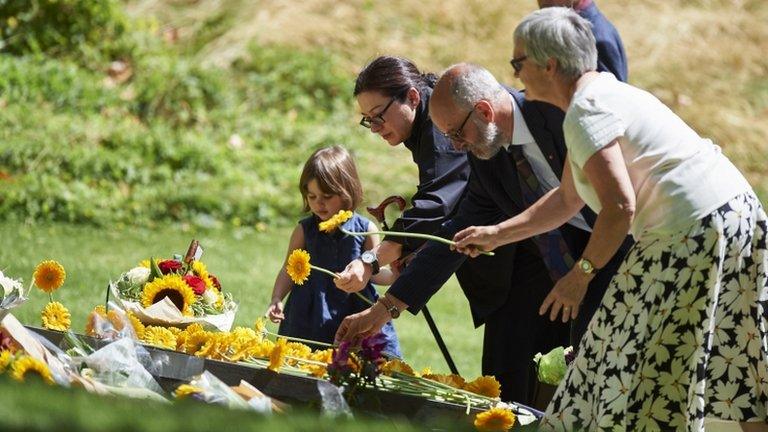
- Published3 July 2015
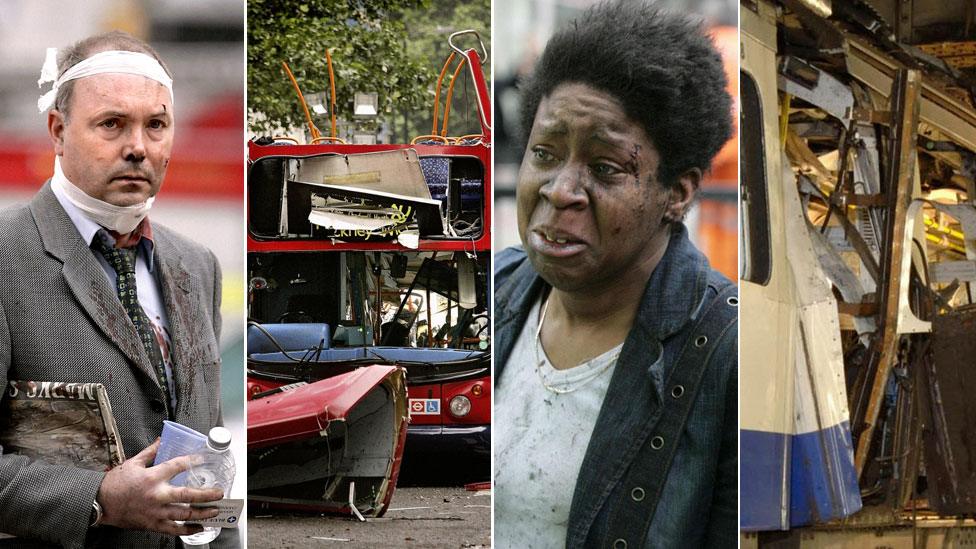
- Published6 July 2015
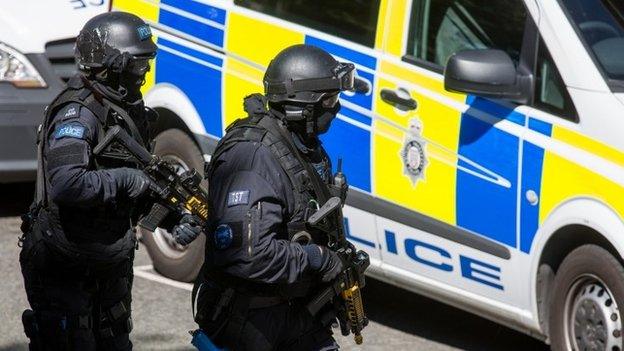
- Published3 July 2015
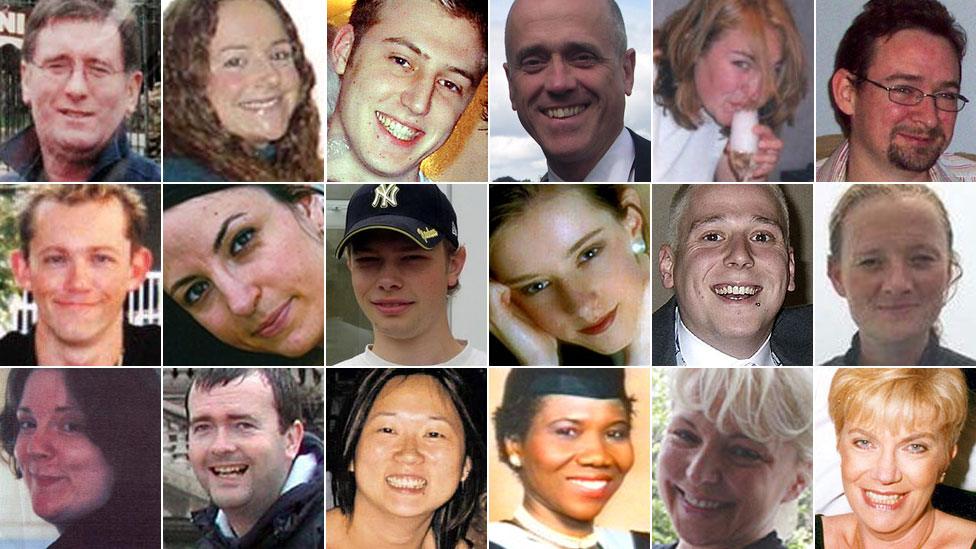
- Published6 July 2015
